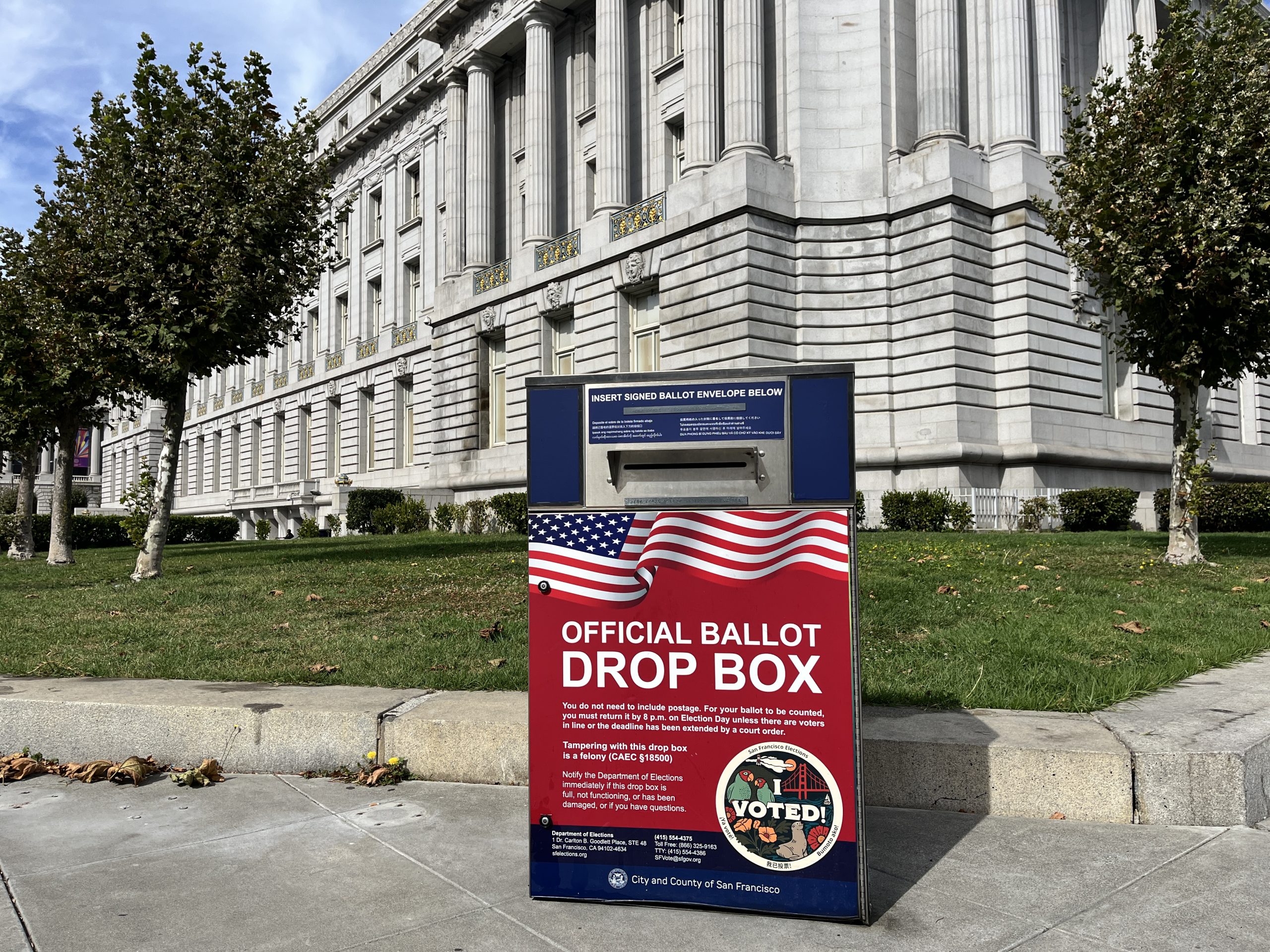[ad_1]
The San Francisco Department of Elections moments ago released the results of an additional 39,845 ballots. That brings the grand total of processed ballots to 364,959 — 69.9 percent of the electorate.
There are, perhaps, 41,000 ballots remaining. Turnout is down statewide and San Francisco is no exception. Some 86 percent of registered voters showed up in 2020. This year, the ceiling is hovering at around 77.8 percent. The average San Francisco turnout in a presidential year, going back to 1916 — when San Franciscans helped send Woodrow Wilson back to the White House because, you know, he kept us out of war — is 77 percent.
On to the contested Board of Supervisors races
In District 1, incumbent Connie Chan has pulled out of a dead heat as of Thursday’s counting to hold a sizable lead over Marjan Philhour. Chan now leads by 976 votes.This race, you may recall, was tied on Thursday when both candidates had 11,001 votes.
Since that time, each vote count has trended Chan’s way.
Four years ago, Chan bested Philhour by fewer than 200 votes. Two years ago, the affluent Seacliff neighborhood was grafted into District 1 during the contentious redistricting process. That the race is trending toward Chan comes as something of a surprise to much of the city’s political establishment.
In District 5, incumbent Dean Preston is running out of runway. While he actually has a sliver more first-place votes than top challenger Bilal Mahmood — 10.837 to 10,558 — Preston is being cooked in the transfers. After ranked-choice voting permutations, Mahmood leads by 1,339 votes. Preston has not been able to gain traction on Mahmood in any tranche of votes that has dropped since Election Day.
Preston was a man with a target on his back. The District 5 race was the most expensive supervisorial contest this year, and it appears that, for a second consecutive cycle, an incumbent will fall.
In District 7, Supervisor Myrna Melgar is capturing nearly 47 percent of first-place votes and holding on to lead a 52.7-47.27 tilt over Matt Boschetto. After ranked-choice voting tabulations, Melgar leads by nearly 1,800 votes.
This was an outcome of the sort many in the city’s political establishment had predicted for District 5, but has not come to pass.
Mathematically, it is possible that both Preston and Boschetto could win their contests — just as, mathematically, it’s possible the Giants will win 162 games next season. Voting trends could change, but there is no logical reason to assume that they will.
In District 11, Chyanne Chen on Saturday caught and passed Michael Lai. Today she added to her slim lead, growing it from 99 votes to 270 (50.6 percent to 49.4 percent).
It would be odd to call a race separated by so few votes, but this one is trending Chen’s way.
In Districts 3 and 9 Danny Sauter and Jackie Fielder continue to hold nigh-insurmountable leads. District 9 challenger Trevor Chandler today announced that he had called Fielder and conceded his race.
In the Board of Education race, top vote-getters Jaime Huling, Parag Gupta and Supriya Ray will be taking office in January. In the battle for the fourth and final slot newcomer John Jersin is now only 99 votes ahead of incumbent board president Matt Alexander (112,109 to 112,010). Alexander gained slightly over 1,000 votes since yesterday’s count and he gained a shade under 1,000 votes in the count before that. All told, he has gained some 4,900 votes since the first drop on Election Day. It would be a statistical anomaly for Alexander to not leapfrog Jersin in Monday’s vote drop.
There were 15 ballot measures put before San Francisco voters in this election. There are no significant changes. The lavishly funded Prop. D continues to hit rock bottom and start to dig. It is now being rejected by 56 percent of the electorate. Its scantly funded countermeasure, Prop. E, has pulled into a comfortable place. It has 52.1 percent of the vote and is up by around 13,000 votes.
Prop. F, a police pension measure, continues to be submerged with 55 percent of voters inveighing against it. Prop. H, a fire pension measure, is clinging to a 51.6 percent approval rate.
Prop. K, the polarizing measure to close portions of the Great Highway, actually lost a bit of ground and is now favored by 53.9 percent of voters (perhaps many of the ballots counted today came from the Westside). This appears academic, however, as the measure’s backers have declared victory and it still leads by nearly 27,000 votes.
Mayor London Breed conceded the race on Wednesday and Daniel Lurie on Thursday claimed victory. After Sunday’s ballot drop and ranked-choice voting permutations, Lurie leads by just under 33,000 votes (55.5 percent to 44.5 percent).
For those keeping track of such things, Aaron Peskin, the third-place finisher, had only 8,200 votes fewer than Breed when he was eliminated in the 13th round of ranked-choice voting.
The next update will come on Monday at 4 p.m.
[ad_2]
Source: missionlocal.org






